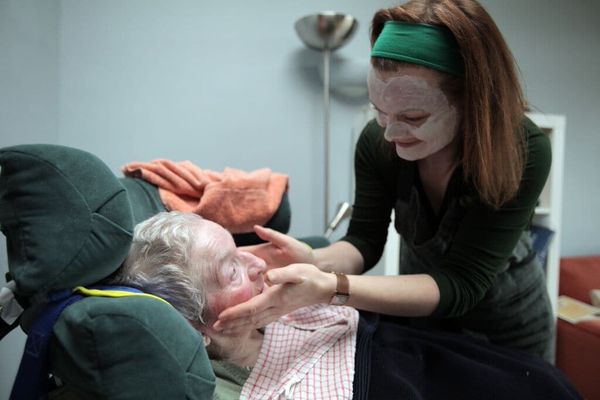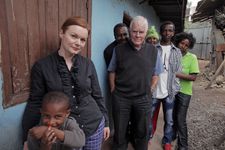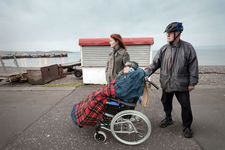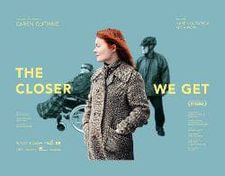 |
| "My mum was my 'co-pilot' in a many ways and part of the strength of the film comes from that sense of two women in cahoots." |
We caught up with the filmmaker at the festival to talk about her film.
Amber Wilkinson: It seems you had decided to start shooting film of your family before your mum had her stroke - what prompted you to turn the camera on yourself and how hard was it to persuade your family to take part? Did you ever regret that?
Karen Guthrie: I always knew my family story was amazing and that it would make a brilliant film - though I wasn't sure I could manage to make that film. The film we planned at the start was to be a two-woman road movie - a light-hearted detective story looking at my dad's past. What prompted that I don't know really - maybe just my growing up and having enough distance from the past to see it as objectively as a film needs. And also genuinely wanting to know about him from others view.
When the stroke happened and we re approached the film, I believe my mum knew that her time left was short and that she wanted (at last) to be listened to. A camera is so powerful - and I guess I was made brave by having it with me and it enabled me to talk about things that were off limits usually - with all my family.
 |
| Karen Guthrie: "Watching yourself (and usually looking very tired!) on screen is never easy but you get over it and it's vital you reveal yourself to an audience or they won't trust your story." |
AW:Did the fact that your mum was debilitated make it harder for you to shoot your footage?
KG: Sometimes if she was off-colour we couldn't film for many weeks and because I never knew how long we could continue, it was very hard to plan the project out. But that urgency certainly focused my mind and I filmed every time like it could be the true last. My carer duties often meant I was exhausted when filming - though this was challenging in some ways I'm sure that it 'disinhibited' me in a good way - it Made me less finicky, more creative, looser.
AW: There is quite a lot of film of the local environment in your - both in Largs and elsewhere, how important was it for you to root your documentary this way?
KG: I realise now that as a child my creativity grew out of being in that specific place and community and so to return there and make this film there reconnected me to that early freedom in a very fruitful way. I felt genuinely compelled to keep working on the film however hard it got and I think some of that motivation came from reconnecting with that childhood creativity. Over time, I realised that though I'd left a long time ago I would always be part of that place and so my cinematography tried to capture that deep sense of identity you have as a bored kid in a seaside town - you know every inch of the prom, every face on the street.
AW: Did you expect that your film would take you so far from home from the outset? Did you find you learn things about yourself from making it/watching yourself afterwards?
 |
| Karen Guthrie: "My cinematography tried to capture that deep sense of identity you have as a bored kid in a seaside town - you know every inch of the prom, every face on the street." |
Watching yourself (and usually looking very tired!) on screen is never easy but you get over it and it's vital you reveal yourself to an audience or they won't trust your story. I learnt from the experience rather than of filming it - the joy of being a carer, that love is more important as a lived thing than words, that you can't escape your past, that marriage is complicated - I could go on!
AW:What do your family - particulary your dad and your youngest brother - think of the finished product, you don't try to romanticise them at all. Did you ever worry that as a documentarian who had a lot of 'skin in the game' that you were favouring one perspective over the other?
KG:It's a self-portrait and my family see that, my narration doesn't hide that the perspective is mine. My mum was my 'co-pilot' in a many ways and part of the strength of the film comes from that sense of two women in cahoots. My dad has seen it but it would be hard to say what he really thinks of it yet. But I think he sees it as a fair portrait of him, and an affectionate one. My siblings think it's great and, of course, love it as a memorial to their mum.
 |
| The Closer We Get poster |
KG:Yes I think so. And, of course, sadly, bereavement is very bonding.
AW: Now you've told your story, whose story is next?
KG: I'm not sure. I fantasise of being asked to make the ultimate documentary about Prince, though.
For more information about the film visit thecloserweget.com





















